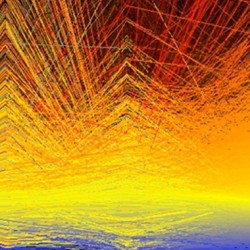 Nicolas Herranz earns international fellowship
Nicolas Herranz earns international fellowship
Five months after arriving at the CSC, Nicolas Herranz has been awarded a Long-Term Fellowship by the European Molecular Biology Organization (EMBO). Nicolas recently joined joined the Cell Proliferation group, and the award secures his scientific post at the CSC for a further two years.
These highly prestigious fellowships support young scientists to pursue international research careers. Following an intensive selection process, awards are made on the basis of an applicant’s previous scientific achievements, the novelty of their proposed research, and the merits of the host laboratory.
“I was delighted to receive this,” said Nicolas. “It’s a fantastic fellowship, and gives you independence and security.” Nicolas completed his PhD in Barcelona, working at the IMIM research institute. His previous research was centred on the role of various epigenetic factors in cancer development. In his words, “during my PhD, I was trying to characterise epigenetic regulators involved in the epithelial-to-mesenchymal transition (EMT)”. EMT is a process in which cells within a primary tumour are transformed to be able to migrate away from the tumour and invade other areas of the body, forming secondary tumours. Understanding this process could be key to controlling the spread of cancer cells around the body.
“I was looking at the role of certain proteins in this process. First I looked at Polycomb proteins, and then the less well-known LOXL2. We tried to characterise its function, and found out that LOXL2 was affecting the methylation of histones.” Histone methylation is an important form of epigenetic regulation: DNA is wrapped around structural proteins called histones. The change of the methylation status of these proteins can completely alter genes’ expression.
Since joining the CSC, Nicolas has been making full use of the resources here to both continue this work and expand his research to encompass new areas. “I am continuing the work from my PhD. I can take advantage of my expertise in that field, and now use the brilliant facilities here. But I’m also doing work related to the ongoing research in Jesus Gil’s lab, about senescence.” In addition, Nicolas is in the nascent stages of investigating how cancerous cells can corrupt surrounding cells. Tumours can build up a chemical communication network by secreting a complex concoction of molecules. This manipulates nearby cells to promote tumour development. Advancing our knowledge of how these secreted factors might play a role in cancer development could lead to important novel approaches to cancer therapy.
Nicolas is enjoying the freedom of postdoctoral research. “When you do your PhD, everything has to be closely related, and contribute to your thesis. As a postdoc it’s different, and more about the results. I have many more options now.” Nicolas will officially begin his fellowship in February 2013.
-AL
